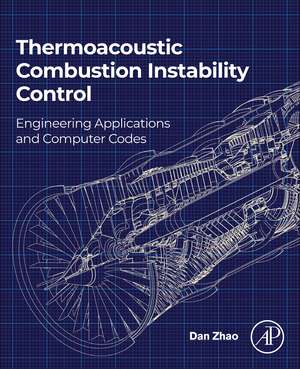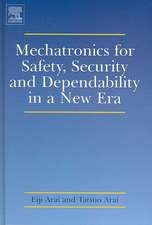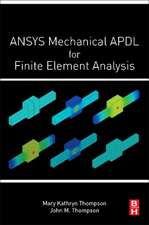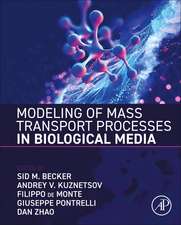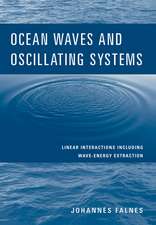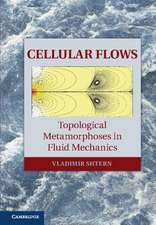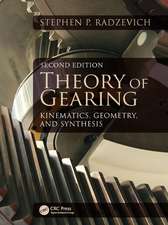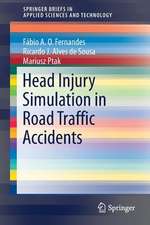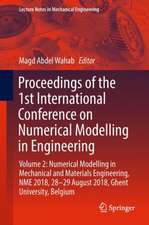Thermoacoustic Combustion Instability Control: Engineering Applications and Computer Codes
Autor Dan Zhaoen Limba Engleză Paperback – 21 feb 2023
Thermoacoustic Combustion Instability Control: Engineering Applications and Computer Codes provides a unique opportunity for researchers, students and engineers to access recent developments from technical, theoretical, and engineering perspectives. It is a compendium of the most recent advances in theoretical and computational modelling, of the thermoacoustic instability phenomena associated with recent advances in multi-dimensional computing methods, and the current recent developments in signal-processing techniques. These include, but are not restricted to a real-time observer, proper orthogonal decomposition (POD), dynamic mode decomposition, Galerkin expansion, empirical mode decomposition, Lattice Boltzmann method, and the associated numerical and analytical approaches. The fundamental physics of thermoacoustic instability occurs in both macro- and micro-scale combustors, and practical methods for alleviating common problems are presented with an analytical approach, to arm readers with tools to apply in their own industrial or research setting.
Readers will benefit from practicing the worked examples presented in this book and the training provided on computer coding for combustion technology, to achieve useful results and simulations to advance their knowledge and research further.
Preț: 1154.63 lei
Preț vechi: 1497.93 lei
-23% Nou
221.01€ • 232.19$ • 185.74£
Carte tipărită la comandă
Livrare economică 04-18 martie
Specificații
ISBN-10: 0323899102
Pagini: 1144
Ilustrații: Approx. 400 illustrations
Dimensiuni: 191 x 235 mm
Greutate: 1.92 kg
Editura: ELSEVIER SCIENCE
Cuprins
1. Introduction to thermoacoustic instability 2. Nonlinear dynamics of thermoacoutics 3. Non-normality, transient growth and non-orthogonality 4. Intrinsic thermoacoustics 5. Acoustic-flames interaction 6. Active control of thermoacoustics 7. Passive control of thermoacoustic instability 9. Aeroacoustic dampers 10. CFD thermoacoustics instability 11. POD and EMD analyses of Rijke-type thermoacoustic instability
Notă biografică
Dr. Dan Zhao is a tenured faculty in Department of Mechanical Engineering, University of Canterbury, New Zealand. He is the director of Master Engineering studies and the Chief Editor of International Journal of Aerospace Engineering; an Associate Editor of 1) AIAA Journal, 2) Journal of the Royal Society of New Zealand, 3) Aerospace Science and Technology. He is also an editorial board member of Progress in Aerospace Sciences and Journal of Thermal Science. After graduating from Cambridge, he worked in London in a high-tech company as a R&D engineer and Singapore University. Currently, Dan is Associate Fellow of AIAA (The American Institute of Aeronautics and Astronautics). Dan's research interests include applying theoretical, numerical and experimental approaches to study porous medium, combustion instability, thermoacoustics, fabric drying, energy conversion, heat and mass transfer, fluid-structure interaction, aeroacoustics, aerodynamics, propulsion and energy harvesting.
Descriere
Thermoacoustic Combustion Instability Control: Engineering Applications and Computer Codes provides a unique opportunity for researchers, students and engineers to access recent developments from technical, theoretical, and engineering perspectives. It is a compendium of the most recent advances in theoretical and computational modelling, of the thermoacoustic instability phenomena associated with recent advances in multi-dimensional computing methods, and the current recent developments in signal-processing techniques. These include, but are not restricted to a real-time observer, proper orthogonal decomposition (POD), dynamic mode decomposition, Galerkin expansion, empirical mode decomposition, Lattice Boltzmann method, and the associated numerical and analytical approaches. The fundamental physics of thermoacoustic instability occurs in both macro- and micro-scale combustors, and practical methods for alleviating common problems are presented with an analytical approach, to arm readers with tools to apply in their own industrial or research setting.
Readers will benefit from practicing the worked examples presented in this book and the training provided on computer coding for combustion technology, to achieve useful results and simulations to advance their knowledge and research further.
- Focuses on applications of theoretical and numerical modes with computer codes relevant to combustion technology
- Includes recent modelling and analytical developments motivated by empirical experimental observations in a highly visual way
- Self-contained chapters which each have a comprehensive introductory section ensure any readers new to this topic are equipped with required technical terms
